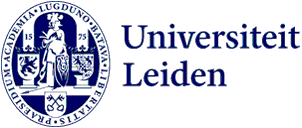
Travelling to Ukraine and under constant guard at the 75th anniversary of the Universal Declaration of Human Rights
What do you do when you hear just ten days in advance that you’ve been selected by the American Society of International Law (ASIL) as one of 75 law experts from America and Europe to meet 75 Ukrainian counterparts in Lviv?
This happened to two colleagues from the Grotius Centre for International Legal Studies: Anna Marhold, assistant professor and a member of the Advisory Council on International Affairs (AIV), and Nico Schrijver, professor emeritus and a member of the Council of State. They were invited by the ASIL and the Ukrainian Association of International Law to attend the ‘Stand Tall for the Rule of Law' Conference in Lviv, Ukraine, from 7 to 10 December 2023. The conference was organised to mark the 75th anniversary of the Universal Declaration of Human Rights and the Genocide Convention. Anna Marhold shares her experiences.
How did your attendance at this conference come about?
The ASIL had already announced the conference earlier in the year. Though we’d registered well in advance, we (Anna and Nico) only heard ten days in advance that we’d been selected. At the time, we’d no idea what to expect.

Why was this location chosen?
The University of Lviv has a historic and symbolic significance. Sir Hersch Lauterpacht, the ‘founding father’ of the Universal Declaration of Human Rights, and Rafael Lemkin, responsible for the creation of the Genocide Convention, both studied at the University of Lviv before World War II. On the fourth day of the conference, all participants put their signatures to the ‘Lviv Principles’ as a symbolic gesture to reaffirm their commitment to the Universal Declaration of Human Rights and the Genocide Convention. Immediately afterwards, the air-raid siren sounded because a MiG-29 combat aircraft had taken off in Russia – a surreal experience. Fortunately, security, a constant presence at the conference, said we didn’t have to find a shelter.
What was the journey like?
Because of the code red issued for travelling to Ukraine, we first had to get approval from the faculty and actually also from the Executive Board. But the latter didn’t succeed as we had so little time. However, ASIL provided full insurance for all those travelling to Lviv. We also received mandatory security training and had to download the air alert app. The journey there was quite exhausting and consisted of flying to Warsaw, and then a six-hour bus journey to Lviv. Once there, we were joined by 75 Ukrainian law experts at Ivan Franko University.

What was your role at the conference?
My colleague Nico Schrijver was invited as a speaker on the panel ‘Reimagining our Global Security Architecture’ due to his knowledge and publications on the impasse within the UN Security Council and the possibilities the UN General Assembly has in this. My expertise is in the area of international trade law and I was invited as a rapporteur for the ‘Law and Development’ roundtable.
What was discussed at the conference?
Over four days, we spoke with Ukrainian colleagues in panels and roundtables on topics arising from the Russian invasion, such as Russia’s liability under international law and the consequences of war crimes. Ukraine’s reconstruction during and after the war, as well as accession to the EU were also discussed.
What made a lasting impression on you?
We talked a lot with colleagues from our field of law, such as lawyers, UN staff working on tribunals, people working for the government and so on. But I was most impressed by the drive and optimism of our Ukrainian colleagues who despite everything came to Lviv from all over the country to attend the conference. Though there were risks to going, it was an unforgettable experience and I also see our attendance as a way to show support. We must continue to support them in their fight against the aggressor.

